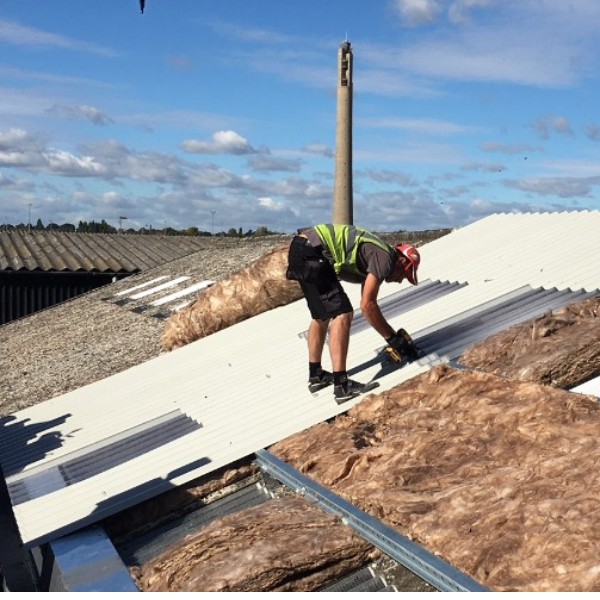
May 28, 2025
When considering major infrastructure improvements for industrial facilities, timing plays a crucial role in determining both project success and cost-effectiveness. Industrial roof replacement represents one of the most significant investments a business can make in its property, and choosing the optimal season for this undertaking can substantially impact both the installation process and long-term performance outcomes.
The British summer months provide the most favourable conditions for comprehensive roofing projects. Extended daylight hours, typically lasting until after 9 PM during peak summer, allow construction teams to maximise productivity whilst maintaining high safety standards. These longer working days translate directly into accelerated project completion times, reducing the overall disruption to business operations.
Stable temperatures in the summer, combined with less rain makes the operation more favourable for installation of materials like membranes, sealants and other glue substances with optimal performance within certain degrees limits.
Certain contemporary industrial roofing systems can be optimally installed during warmer months. Single ply membrane systems, metal roofing components, and certain sealants achieve cures to optimum levels within warm and stable environments. The thermal expansion properties of roofing materials during seasonal summer installation aid in ensuring a proper fit and optimal performance throughout seasonal temperature changes.
Concrete surfaces while providing the roofing system require thorough scrutiny during summer months. In this context, summer weather not only provides the desired reduced moisture conditions, but ensures complete moisture during the application of surfaces, ensuring thorough moisture drying post application. Such practices form the foundation of the moisture concern required for surpassing expected long term performance for roofing systems.
Installing or replacing such systems during dry summer months aids in optimising operational impact. Certain industrial facilities are observed to operate within certain production schedule seasonality. Summer periods are often viewed as a window period to accommodate shutdowns.
Construction works is hence coordinated with planned maintenance shutdowns or reduced operational timeframes for increased operational efficiency. Extended working hours create flexibility to schedule for other routine activities outside working hours, dynamically targeting weather-sensitive, continuously operating production industries with great efficiency.
Projects concerning roof replacements in the summertime are often accompanied by optimum cost-benefit scenarios. Due to the fact contractors have steadier workflow during the summer months, there is a greater chance for more competitive pricing. In addition to this, the lack of weather-related delays contributes to greater predictability in a project’s timeline and costs.
Moreover, facilities positioned for roof replacements during the summer months stand to gain from enhanced energy efficiency during the following heating season. Modern-day roofing structures installed during the proper timeframe offer optimal thermal performance, leading to measurable energy savings during midwinter, and therefore maximising the benefits from the newly installed roofing system.
The roofing industry typically has a peak material availability during summer months. Roofing component manufacturers guarantee a wider selection as well as specialised industrial roofing components, because they previously planned and increased production capacity due to the seasonal demand. Enhanced supply chain dependability lowers project holdups and aids with better timing about intricate multi-phase installations.
Availability of skilled labour is also reliable during summer months. Professional roofers who work on a variety of projects can make steady schedules during this time due to the lack of weather interruptions. This consistency is crucial for specialised industrial projects that demand precision and careful construction techniques.
During the summer months, there is a distinct advantage of being able to plan installations in advance. These steps include the acquisition of permits as well as roof inspections and planning which is done during the spring. The preparation phase may include more thorough evaluations of the site’s conditions, precise hardware and material specifications, and detailing the timeline alongside other facility improvement undertakings.
For replacement projects involving active buildings, the thorough evaluation process coupled with the low probability of weather interruptions ensures poorly planned or executed replacement projects do not leave unaddressed concerns and instead incorporate useful performance upgrades.
In terms of long-term performance, systems put in place during summer are likely to perform better over time as they are properly installed under optimal conditions. The materials are designed to withstand expected outdoor temperatures during the summer months, which helps keep materials functional for longer periods, thereby minimising maintenance checks and failures.
Such focus towards prep work enables the roofs to better face harsh weather during winters. The summer built robust roofs not only enhances durability, but also the return on investments and lifecycle maintenance costs.
If you are thinking now is the time for roof replacement, Durasteel Roofing Services have over 15 years of experience with a professional team of specialists roofing contractors, providing a first class service and a reputation for being one of the UK’s leaders in Commercial and industrial roofing replacements.
Summer is one of the best target periods due to low operational interference coupled with strategically planned roofs put in place under ideal conditions. With economic advantages combined alongside multi-season performance flexibility, summer presents the best siding decision for investments made towards industrial roofing.